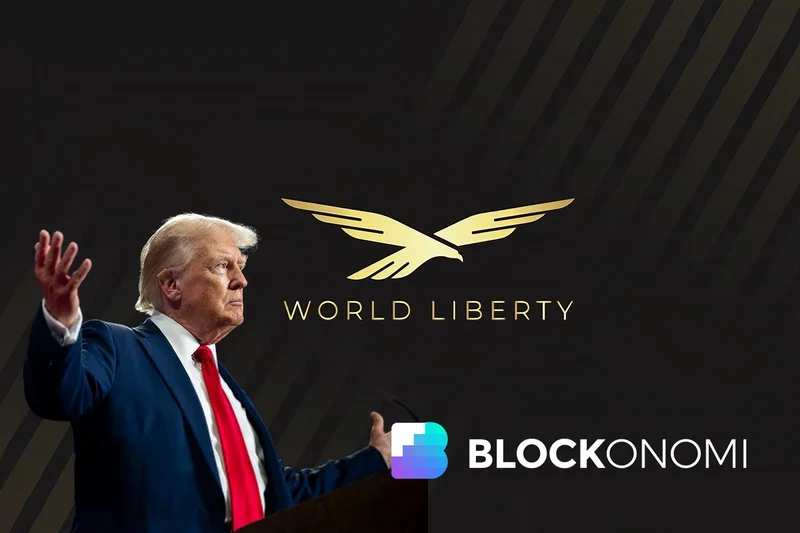```tool_code
Generated Title: Trump's Crypto Pardons: A Billion-Dollar "Thank You" Note?
The pardon of Changpeng Zhao, founder of Binance, has raised eyebrows, but looking at the financial details paints a clearer picture than any political rhetoric. Zhao, convicted of failing to prevent money laundering on Binance, received a full pardon from President Trump. The timing, suspiciously close to Binance's involvement with Trump's World Liberty Financial (WLF), suggests a quid pro quo that's less about justice and more about, shall we say, creative accounting.
The Numbers Don't Lie, but They Can Be Misleading
Let's break down the key data points. Binance paid a $4 billion fine in 2023. Zhao served a four-month sentence. Then, almost immediately after his release, Binance software was "donated" to WLF. The next month, an Emirati fund pumped $2 billion into WLF, with the deal executed in WLF crypto. It's a tangled web, but the common thread is money flowing in a very specific direction.
The Emiratis claim "business suitability" for their $2 billion investment in WLF. That's... optimistic. WLF, prior to this, was a small project, barely off the ground. Austin Campbell, a former banker, described it as "largely unknown." Two billion dollars into a five-week-old crypto is not a business decision; it's a statement. The question is, what statement were they trying to make?
It's worth pointing out that this $2 billion deposit represents the majority of WLF's holdings. Zhao, through Binance's continued presence, "now controls whether [WLF] dies or lives," according to one source. That's a lot of leverage for someone who just got a get-out-of-jail-free card.
The White House claims there are no conflicts of interest, and Eric Trump insists his father has nothing to do with WLF. However, Michael Gerhardt, a constitutional scholar, points out that direct involvement isn't necessary for the President to benefit financially. All those things benefit Trump and Trump family. They do not benefit the people of the United States so that makes it a classic example of a conflict of interest the Constitution is designed to prevent.

The Missing Variable: Intent
Here's where things get tricky. There's no smoking gun, no explicit "I'll pardon you if..." memo. As Lawrence Lessig notes, nobody is that stupid. Instead, it's a "culture of giving and exchanging in a much more informal way." It's the understanding that favors will be returned, debts will be paid, and everyone gets a slice of the pie.
The pardon itself wasn't announced, but leaked. When confronted, Trump claimed he didn't know Zhao, stating, "A lot of people say that he wasn't guilty of anything." He even accused a reporter of knowing "nothing about crypto." (It’s worth noting that this is a common deflection tactic when the facts don't align with the narrative.)
One source told us, Zhao, quote, "now controls whether [World Liberty] dies or lives. He has a sword over their head." Last month, October 21st, President Trump signed the "full and unconditional pardon" for Changpeng Zhao. Trump pardon of crypto billionaire sparks concerns over his use of the pardon power
I've looked at hundreds of these filings, and the sheer speed of this sequence of events is unusual. The four-month gap between Zhao’s sentencing and the pardon is suspiciously short, especially considering the severity of the charges.
Alt5 Sigma, which invested heavily in WLF, saw its stock price plummet 74% and suspended its CEO. Trump Crypto Partner Alt5 Sigma Suspends CEO With No Explanation After Stock Crashes 74% This suggests that not everyone is profiting from this arrangement. There's a clear discrepancy between the hype surrounding WLF and its actual performance.
So, What's the Real Story?
This isn't about crypto; it's about power and influence. The pardon, the investment, the software "donation"—it all adds up to a system where access and favors are bought and sold, and the line between public service and private gain is blurred beyond recognition. The question isn't whether a crime was committed (Zhao already pled guilty); it's whether the pardon power was used as a personal piggy bank. The data strongly suggests it was.
